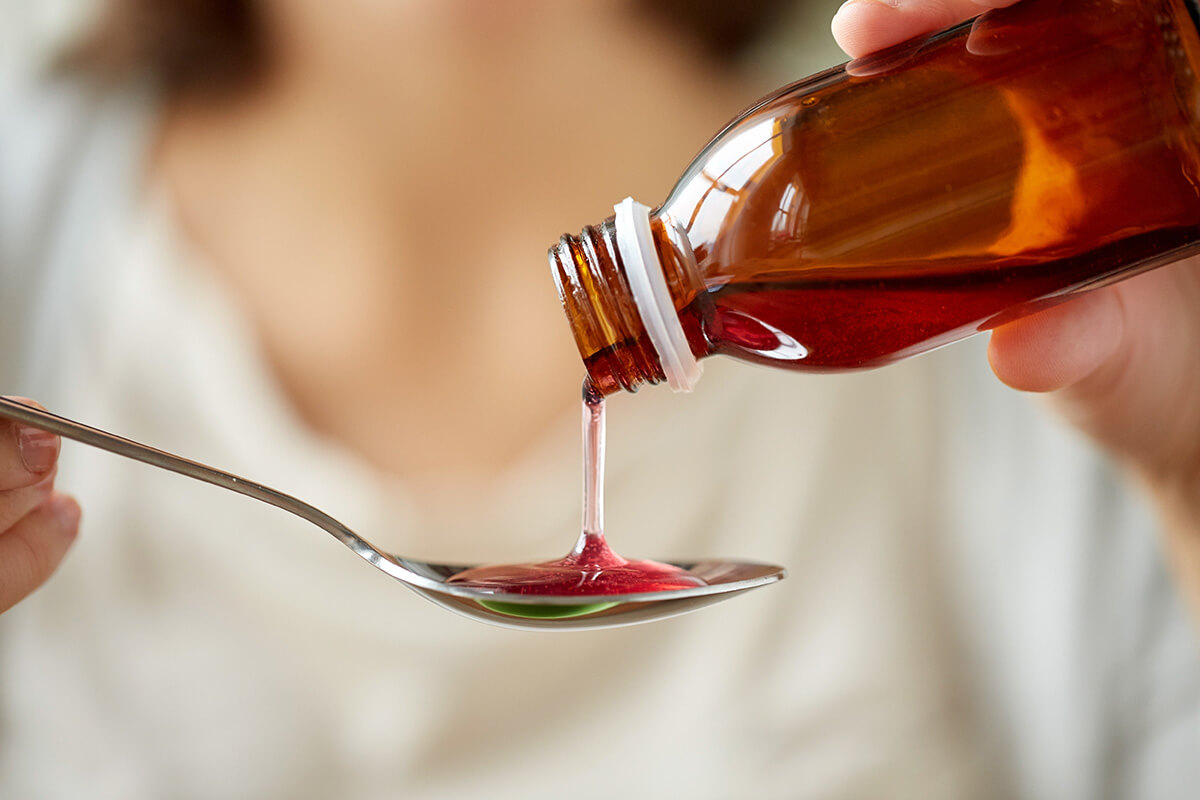An ingredient found in many cough and cold remedies is finding its way into the hands of teens intent on using it to get what is described as a cheap dissociative high. Teen cough medicine abuse is something parents need to make themselves aware of. Dextromethorphan (DXM) – a synthetic ingredient found in more than 125 products, including Vicks Nyquil LiquiCaps and Dimetapp DM – is increasingly being misused by teens with ready access to what is a legal drug available without a prescription.
“When abused, dextromethorphan takes on qualities of a dissociative drug,” the Canadian Council on Drug Abuse explains in the literature to parents and others. “This means that it produces feelings of detachment in a person, as well as distorting a person’s perception of sight and sound.”
A 2008 study found that one in 10 American teenagers have used products with DXM to get high, making it more popular in that age group than cocaine, ecstasy, LSD, and meth. And although DXM products are considered safe when taken as recommended, high doses can cause side effects that include blurred vision, numbness, heart attack, confusion, dizziness, nausea, vomiting, anxiety, and poor coordination. Longer-term effects are not fully known but are believed to include depression, liver problems, psychosis, and learning and memory problems. Venture Academy has the experience to walk parents through this type of substance abuse.
What Can Parents Do About Teen Cough Medicine Abuse?
Start by talking to your teen about the dangers of abuse and the fact that over-the-counter medications are as dangerous as street drugs.
Experts like Celebrity Rehab’s Dr. Drew Pinsky say parents need to include cough medicine abuse in drug-abuse conversations with their kids.
“Make sure they understand you do not approve of any sort of substance abuse behavior and that they understand the risks of medicine abuse,” Pinsky is quoted as saying.
Keep DMX Products Under Lock and Key
Treat products with DMX like the potentially harmful substances they are. Clean out your cabinets and store all medicine in a safe, locked location where you can monitor how much is in each container. Also, it makes sense to be aware of just how much of the medicine you use and have available in your house. To further help teens avoid temptation or abuse, purchasing products with DMX should be done by adults and never left for children to do.
Watch for Signs of Cough Medicine Abuse
Pinsky says it’s important parents recognize that DMX abuse is a problem that affects teens of all kinds – not just troubled teens.
“Parents may think, ‘not my teen,’ but one in 10 teens report having abused cough medicines to get high, and 28 percent know someone who has tried it,” he says.
Signs of abuse to watch for include:
- Empty cough medicine boxes or bottles in the trash of your teen’s room or backpack
- Boxes or bottles of medication missing from the medicine cabinet.
- Changes in friends, physical appearance, or sleeping or eating patterns
- Loss of interest in hobbies or favorite activities
- Hearing your teenager use slang terms associated with DXM abuse, including Dex, Skittling, Tussing, Robo-Tripping, Triple Cs, Poor Man’s Ecstasy, Red Devils, Rome, and Sky, to name just a few.
To help reduce the likelihood of cough medicine abuse, it makes sense for parents to educate themselves. However, it’s also important to talk with teens about the risks involved in abusing substances. Rather than lecture them on what not to do, by talking with teens as the young adults they are, parents stand a better chance of encouraging adolescents to stay clear of harmful practices.
Venture Academy
If your child is exhibiting signs of teen cough medicine abuse, Venture Academy can help. Drug and alcohol treatment is just one of our many treatment programs for troubled teens. Some other programs we offer include:
To learn more, call 866.762.2211.







